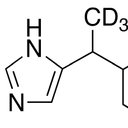Effects of traumatic brain injury on reactive astrogliosis and seizures in mouse models of Alexander disease.
Keywords
Abstract
Alexander disease (AxD) is the only known human pathology caused by mutations in an astrocyte-specific gene, glial fibrillary acidic protein (GFAP). These mutations result in abnormal GFAP accumulations that promote seizures, motor delays and, ultimately, death. The exact contribution of increased, abnormal levels of astrocytic mutant GFAP in the development and progression of the epileptic phenotype is not clear, and we addressed this question using two mouse models of AxD. Comparison of brain seizure activity spontaneously and after traumatic brain injury (TBI), an effective way to trigger seizures, revealed that abnormal GFAP accumulation contributes to anomalous brain activity (increased non-convulsive hyperactivity) but is not a risk factor for the development of epilepsy after TBI. These data highlight the need to further explore the complex and heterogeneous response of astrocytes towards injury and the involvement of GFAP in the progression of AxD.


